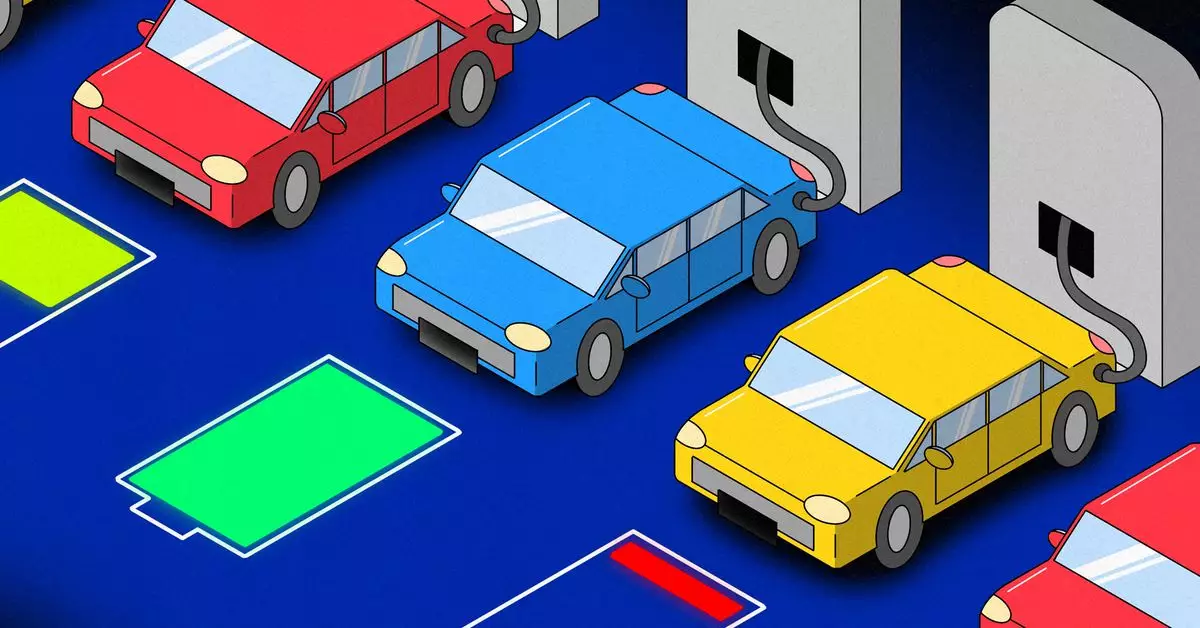When it comes to electric vehicles (EVs), one of the key selling points has always been their supposedly low maintenance requirements compared to traditional gas-powered vehicles. The absence of oil changes, reduced gunk buildup, and fewer moving parts are often touted as the main advantages of EV ownership. However, the latest quality study by JD Power raises some serious concerns about the actual maintenance needs of electric vehicles.
Quality Study Findings
According to JD Power’s survey, which measures reported problems per 100 vehicles of a particular brand, EV owners reported 266 problems per 100 vehicles compared to 180 problems per 100 vehicles reported by owners of internal combustion vehicles. Interestingly, the issues with EVs seem to be less related to the mechanics, such as motors and batteries, and more focused on the technology components of these vehicles. Owners of cutting-edge EVs filled with tech are experiencing problems at a rate three times higher than owners of gas-powered vehicles.
While Tesla has historically performed better than legacy automakers in terms of EV quality, the latest survey shows that the gap has narrowed significantly. JD Power attributes this shift to major design changes in Tesla vehicles, including the removal of traditional controls like turn signal and wiper stalks. However, the primary complaints from consumers revolve around tech-related issues, highlighting the challenges posed by the rapid integration of software in modern vehicles.
One of the major areas of concern highlighted in the survey is the difficulty consumers face with infotainment touchscreens and smartphone integration. EVs reportedly have 30% more problems with “Features, Controls and Displays” compared to internal combustion vehicles. Issues such as difficulties connecting smartphones to vehicles and frequent disconnections are causing frustration among consumers, emphasizing the need for seamless integration of tech features in modern cars.
Brand Loyalty vs. Maintenance Concerns
The survey also reveals that brands with the fewest reported problems tend to have higher levels of repeat buyers, particularly in the truck segment. This trend underscores the importance of brand loyalty in mitigating maintenance-related issues, as consumers who stick with a familiar brand are less likely to encounter problems compared to those who opt for new or unfamiliar brands.
The Evolving Landscape of Vehicle Maintenance
As the automotive industry undergoes a significant transformation from gas-powered vehicles to computerized EVs, the transition is not without its challenges. The increasing complexity of electric vehicles, coupled with the rapid pace of technological advancements, is creating a landscape where maintenance issues related to software integration and tech features are becoming more prevalent. Customers are now finding themselves navigating a shifting terrain where familiarity with traditional vehicles is being replaced by the complexities of high-powered computers on wheels.
While the allure of minimal maintenance requirements for electric vehicles remains a compelling factor for many consumers, the reality painted by the latest quality study suggests a more nuanced picture. The maintenance needs of EVs are evolving, with a growing emphasis on technology-related issues that require careful consideration from both manufacturers and consumers alike. As the automotive industry continues to forge ahead in its transition to electric vehicles, addressing these maintenance challenges will be crucial in ensuring a seamless and satisfactory ownership experience for EV drivers.


Leave a Reply